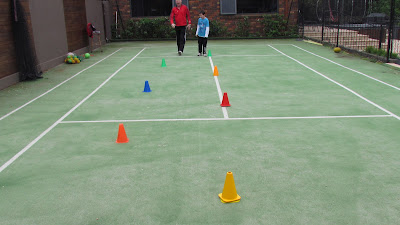Michael was 6 years old when we first met him and he had Prader-Willi Syndrome (PWS). That was 16 years ago, and it is not an initial assessment/meeting that I am going to forget in a hurry. Michael was small and compact and very cute. He had big brown eyes made even bigger by the round reading glasses he wore. He loved to talk and had asked twenty questions within the first 5 minutes of meeting. Fair to say I needed a strong coffee and a sit down after that first session.
Prader-Willi Syndrome is a congenital disorder (meaning that you are born with it) and is caused from an abnormality on the 15th chromosome. PWS typically causes low muscle tone and short stature if the child is not treated with growth hormone. The child is usually born with underdeveloped genital organs. The child with PWS usually faces learning difficulties, behavioural problems and motor development delays that can continue into adult life. People with Prader-Willi syndrome often have obsessive-compulsive behaviour-they may hoard possessions and show repetitive habits such as picking at skin or hair. Some individuals can be more severely affected than others.
Another heartbreaking symptom of Prader-Willi Syndrome is that food becomes an insatiable obsession. Although children with Prader-Willi syndrome are always voraciously hungry, they actually require slightly fewer calories than a normal child, and coupled with a metabolism that utilises drastically fewer calories than normal, it can be particularly difficult to control the child’s weight. In addition, the child may go to great lengths to get food. Parents and carers may have to take strict measures to control food intake. The hyperphagia (extreme unsatisfied drive to consume food) lasts throughout the lifetime.
Michael had a really sweet and loving personality, which is also typical of children with PWS. During his initial assessment Michael really challenged our teaching skills. We found it quite difficult to measure any of his physical capabilities, as it was so tricky trying to keep him on task. He was very fixated on locks and doors and spent a bit of time trying to go from door to door - to escape we thought! When we went outdoors for the skills assessment, we had him trapped in a closed and fenced environment. That was interesting, like watching a miniature burglar trying pick a lock. After the lock picking, question asking, and concentration span of about 2 seconds of his assessment, I really needed that coffee!
Michael went on to make great progress with us at Heartwell. He worked with us for about five years finishing when he was about to start secondary school. He would attend regularly during that time, two sessions a week at 7.15am - while his Dad snuck off for an early morning wake up coffee. Michael was very rigid is his approach to his program and any deviation or attempt to introduce a new activities was frowned upon. We had to be very sneaky. He wanted to ride the bike for 8 minutes exactly and he had to have the blue mat to stretch on. He had to use the orange ball to catch with and the long red bat to hit with. Despite all of this, he made excellent progress and over time, and he became much more accepting of new activities and challenges. He kept himself fit and his weight under control. He learnt new skills to use in the school play ground. He had some fun.
A nice post script to this is that Scott ran into Michael’s dad a few years ago at an event. His dad said how well Michael was doing and how much the family appreciated Heartwell’s early intervention with him. Despite all those early morning starts, they still remember Heartwell with fondness. That’s nice.
 |
| Michael 1998. "I love the blue mat". |










